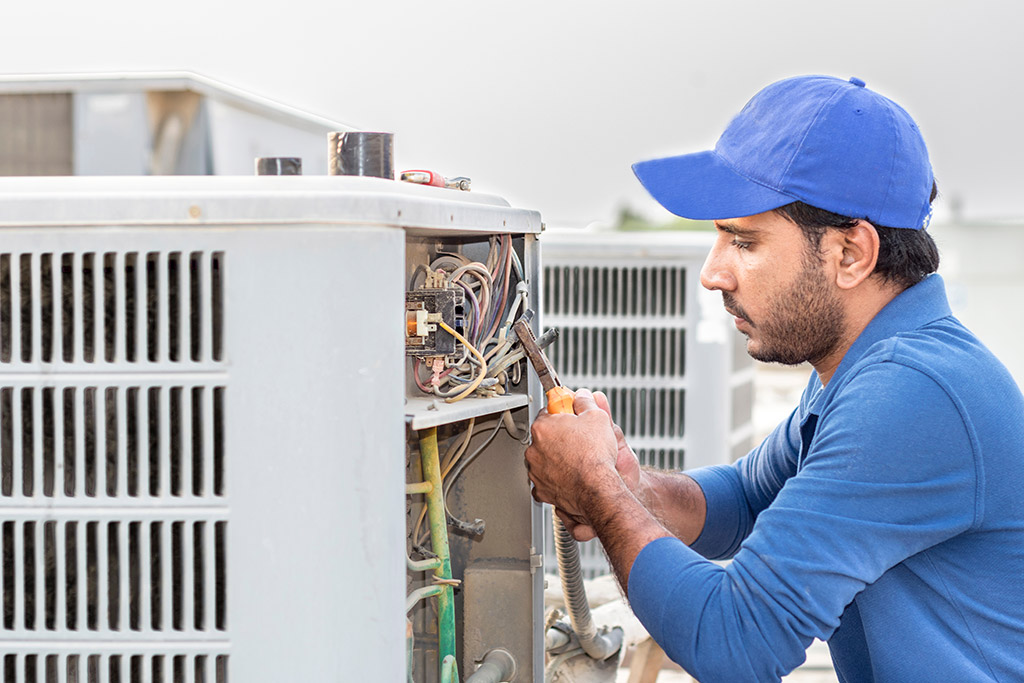A good night's sleep is essential for total health and well-being, yet many people have trouble to achieve it. A frequently ignored factor that can greatly impact sleep quality is the surroundings in which we rest, particularly the heating systems in our homes. Knowing how HVAC systems operate and the manner they contribute to a comfortable sleeping environment can help you enhance your sleep quality and daily performance.
In this article, we will discuss the various aspects of HVAC systems and their immediate influence on sleep. From maintaining ideal temperature and moisture levels to ensuring clean indoor air quality, the role of HVAC is critical not just for comfort but for health as well. We will provide insights into frequent HVAC problems, maintenance tips, and new solutions that can help build a sleep sanctuary designed to your needs. By the end, you will acquire the knowledge needed to make educated decisions about your HVAC system, enhancing your sleep quality for a better, more refreshing experience each night.
Grasping HVAC Systems
HVAC stands for Heating, Ventilation, and Cooling, which are the 3 key components that function in unison to ensure comfort in home and industrial spaces. Heating systems are responsible for maintaining warmth during winter, while air conditioning units lower the temperature of the air when it gets hot. Air circulation ensures that clean air circulates across the space, removing indoor pollutants and maintaining indoor air quality. Learning about how these systems work is essential for choosing correctly about upkeeping and enhancing home comfort.
The core function of an HVAC system is based on its various components, including the furnace, air conditioner, thermal pump, and ductwork. The boiler or heat pump generates heat that is sent through ducts or heaters, while the cooling unit cools and dehumidifies the air. Efficient airflow is secured through well-placed vents and fans, making certain all areas of a home receives the necessary conditioning. Understanding of how these parts interact helps in improving their performance and energy efficiency.
Frequent HVAC problems can arise from lack of maintenance, old technology, or poor sizing of the system for the space. These issues can appear in variable temperatures, rising energy bills, or a faulty system. Routine maintenance, such as filter changes and periodic tune-ups, can stop many of these problems and prolong the lifespan of the system. By comprehending HVAC systems and their frequent problems, homeowners can make better choices in repairs or replacements, providing for a comfortable living environment throughout the year.
HVAC Care and Effectiveness
Routine Heating, Ventilation, and Air Conditioning maintenance is essential for making sure the system functions effectively and efficiently. Clean filtration systems, for example, allow improved air circulation, which allows the system to achieve a set heat level with less energy consumption. Ignoring maintenance can lead to increased energy costs and a reduction in performance, as dust and grime accumulate within the system. Scheduling routine inspections not only assists identify possible issues in advance but also extends the lifespan of the HVAC equipment.
Another key factor of HVAC efficiency is the fine-tuning of thermostat settings. It's crucial to find a balance that maintains convenience while also minimizing energy use. For instance, adjusting the thermostat a few degrees higher in summer and a slightly lower in winter can result to considerable savings over time. Numerous modern systems offer programmable thermostats that change on their own, guaranteeing peak performance based on your routine and preferences.
To wrap up, keeping the area around the HVAC unit clear and free from obstacles aids in effective operation. This allows for enhanced airflow and prevents excessive heat or stress on the system. Frequently checking for leaks in ductwork and ensuring proper insulation can further enhance energy efficiency. By implementing these simple steps, residents can ensure their HVAC systems operate smoothly while contributing to lower energy costs and enhanced comfort in their home spaces.
HVAC's Impact on Indoor Air Quality
The state of indoor air is crucial for preserving a wholesome residential environment, and HVAC systems hold a critical role in this aspect. By effectively regulating heat and humidity, HVAC systems aid to lessen the growth of fungi, contaminants, and other toxins that can impact air quality. Additionally, adequate ventilation provided by these systems ensures that fresh outdoor air moves inside, lowering the level of interior contaminants and providing a more pleasant environment.

To boost interior air purity, selecting the appropriate air filters for your HVAC system is essential. AC installation -efficiency particulate air (HEPA) filters can trap a large proportion of floating particles, such as dust, plant spores, and animal fur. Consistently changing these filters, as part of HVAC care, helps maintain peak performance and ensures that the air circulating in your home is clean and secure. Furthermore, some advanced HVAC systems come fitted with sophisticated filtration systems that can additionally improve air purity by removing smells and toxic particles.
Moisture control is another key function of HVAC systems that specifically impacts indoor air purity. Adequate humidity levels help prevent the development of pathogens and viruses, which prosper in overly moist environments. Setting up a moisture remover or ensuring your HVAC system features humidity regulation features can greatly improve your home's air quality, making the habitat space not only more enjoyable but also healthier. Keeping humidity in check contributes to improved respiratory health and minimizes allergy symptoms, leading to improved overall health for inhabitants.
